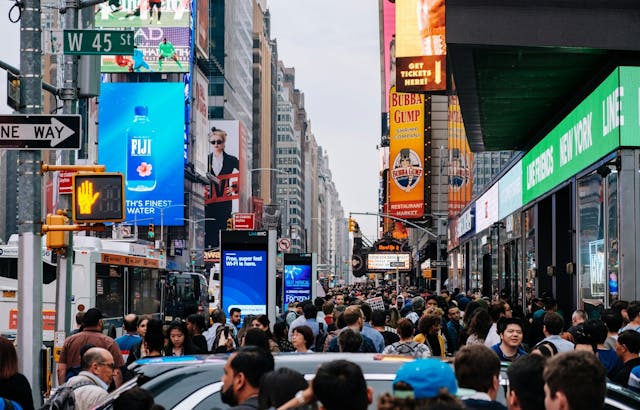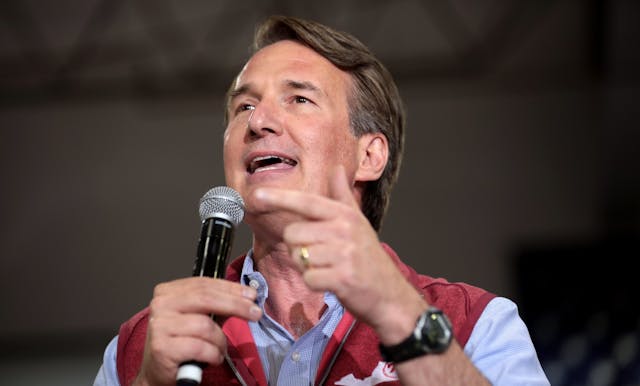Trump Turns to Clinton Mentor for Foreign Policy Advice

On Wednesday afternoon, presumptive GOP nominee Donald Trump met with Henry Kissinger, the former secretary of state and national security advisor to presidents Nixon and Ford, to discuss foreign policy.
The meeting comes after a series of controversial interviews that Trump had on the subject of foreign policy, including with the Washington Post and The New York Times in March. In an interview with Reuters published on May 17, Trump raised eyebrows with his comments about his willingness to talk to North Korea dictator Kim Jong Un and his desire to renegotiate the terms of the Paris accord on climate change.
By meeting with Kissinger, Trump hopes to bolster his foreign policy credibility, which has been impugned in recent months, especially by fellow Republicans. In early March, more than 100 Republican national security experts published an open letter stating their opposition to Trump's candidacy based on his a list of a number of objections.
More recently, the leader of Trump's foreign policy committee, Republican Sen. Jeff Sessions, told ABC's Martha Raddatz that Trump is "going to need to learn" a lot in the coming months, and former defense secretary Robert Gates criticized Trump for several specific statements Trump has made, including admiring remarks about Vladimir Putin, unclear details about how to defeat ISIS, and his suggestion that he would initiate a "trade war" with China to punish the country for unfair economic and business practices.
China was likely a discussion topic during Trump's visit with Kissinger. Kissinger is an expert on the country: he is credited with helping open diplomatic relations between the U.S. and China under Nixon and has since written a lengthy tome about the country.
In many ways, Trump and Kissinger share a similar outlook on foreign affairs. Both largely subscribe to the "realist school" of international relations, which sees states as the central actors in the world. Under this view, states should advance their interests by being prudent in their use of force and limiting their commitments to international organizations and agreements that can constrain their behavior.
Based on his remarks in recent months, Trump appears very much to be a realist. He has criticized the U.S.'s use of force in Iraq and Libya to depose dictators, claiming such idealistic adventures in bringing democracy to the Middle East have facilitated the rise of radical Islam, especially ISIS.
Trump has also been critical of the U.S.'s adoption of NAFTA, crediting it with hurting America's manufacturing base, and he has argued that the U.S. is being damaged by its outsized bankrolling of NATO, the Cold War-era security alliance that Trump has called "obsolete."
At 92, Kissinger is still very much respected among foreign policy realists in both parties. Indeed, Hillary Clinton sought Kissinger's counsel throughout her political career, especially during her tenure as secretary of state, and has referred to him as "a friend."
But her friendship with Kissinger became a major point of contention between Clinton and Sanders during their PBS debate in Milwaukee in February. There, Sanders called Kissinger "one of the most destructive secretaries of state in the modern history of this country" and proudly declared, "Henry Kissinger is not my friend."
Kissinger has long been criticized on the left for his political record, including his efforts to prolong and broaden the Vietnam War, overthrow foreign, democratically-elected leaders, and support despots seen as important strategic partners. Kissinger's actions have been the subject of several books, including The Trial of Henry Kissinger by Christopher Hitchens, Kissinger's Shadow by Greg Grandin, and The Blood Telegram by Gary Bass.
Among the foreign policy actions criticized by these authors relates to his role in the Vietnam War: the cynical subversion of the 1968 Paris peace negotiations to help elect Nixon as president, increased bombing in Southeast Asia, and the expansion of the conflict into Laos and Cambodia.
Critics also point to his support for the coup against the president of Chile, Salvador Allende, the provision of military and financial aid to Turkey in its invasions of Cyprus, and for complicity in genocides in Bangladesh and East Timor in order to appease authoritarian allies in Pakistan and Indonesia who were seen as indispensable partners in the global fight against communism.
It is because of Kissinger's controversial legacy that he is described in some circles as an "elder statesman" and awarded the highest civilian honors by the Obama administration, while in others he is deemed "a war criminal" worthy of public trial.
At this point, it is hard to estimate what the outcome of Trump's meeting with Kissinger, beyond a symbolic boost, will be. Is Trump merely going through the motions in an effort to ingratiate himself with the party establishment and with Washington elites, or will he further refine his foreign policy views? Stay tuned.



